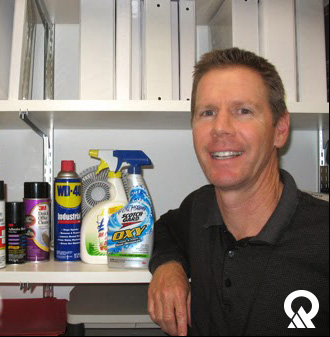By Pat Sheehan

Household hazardous waste (HHHW) is any waste produced in the home which contains hazardous substances or may pose a threat to the environment, pets and wildlife, or human health (think little children as the most immediate risk). Products containing hazardous substances are often labeled with words such as: toxic, flammable, corrosive, reactive, danger, warning, caution, flammable, explosive, “do not use near open flame,” and other cautionary words. Hazardous products become hazardous waste once the consumer no longer has any use for them, and it’s the stuff that nobody likes having around.
You know the stuff I’m talking about—that old paint that’s been sitting there for 13 years (you really don’t like that color anymore), that toilet bowl cleaner that didn’t get used (I don’t clean as much as I let on; but hey, we all have secrets, right?), the ant and bug spray that we’ve become afraid to touch because the can has corroded and turned brown, the weed killer we used one summer because the neighbors peer-pressured us to decimate the dandelions, or even the old fluorescent lamps from the old light fixture we don’t know what to do with. You know … that stuff.
The bottom line is that it’s the stuff that when disposed, it can cause problems. When HHHW is put into the trash, it ends up in landfills not designed for that material. When it is burned, the environment becomes polluted with toxic chemicals. When it is put down household drains, it can contaminate septic tanks or wastewater treatment systems, and when it is put into the local storm drains, hazardous waste enters our water supply and threatens fish, wildlife and public health.
So what do we do with it? Well lucky for us, we live and work near places where we can take this HHHW stuff where it will be managed properly. There are HHHW one-day collection events and/or permanent HHHW collection sites in Cache, Weber, Davis, Salt Lake, Utah, Summit and Tooele counties.
If you have any questions regarding HHHW, give me a call at (801) 536-0248.
I have been an environmental scientist at DEQ for 20 years, working in the Division of Environmental Response and Remediation, the Division of Air Quality, and currently in Division of Waste Management and Radiation Control, where I work on solid waste, hazardous waste, and recycling issues. I also teach yoga at the employee fitness room on Wednesdays.

